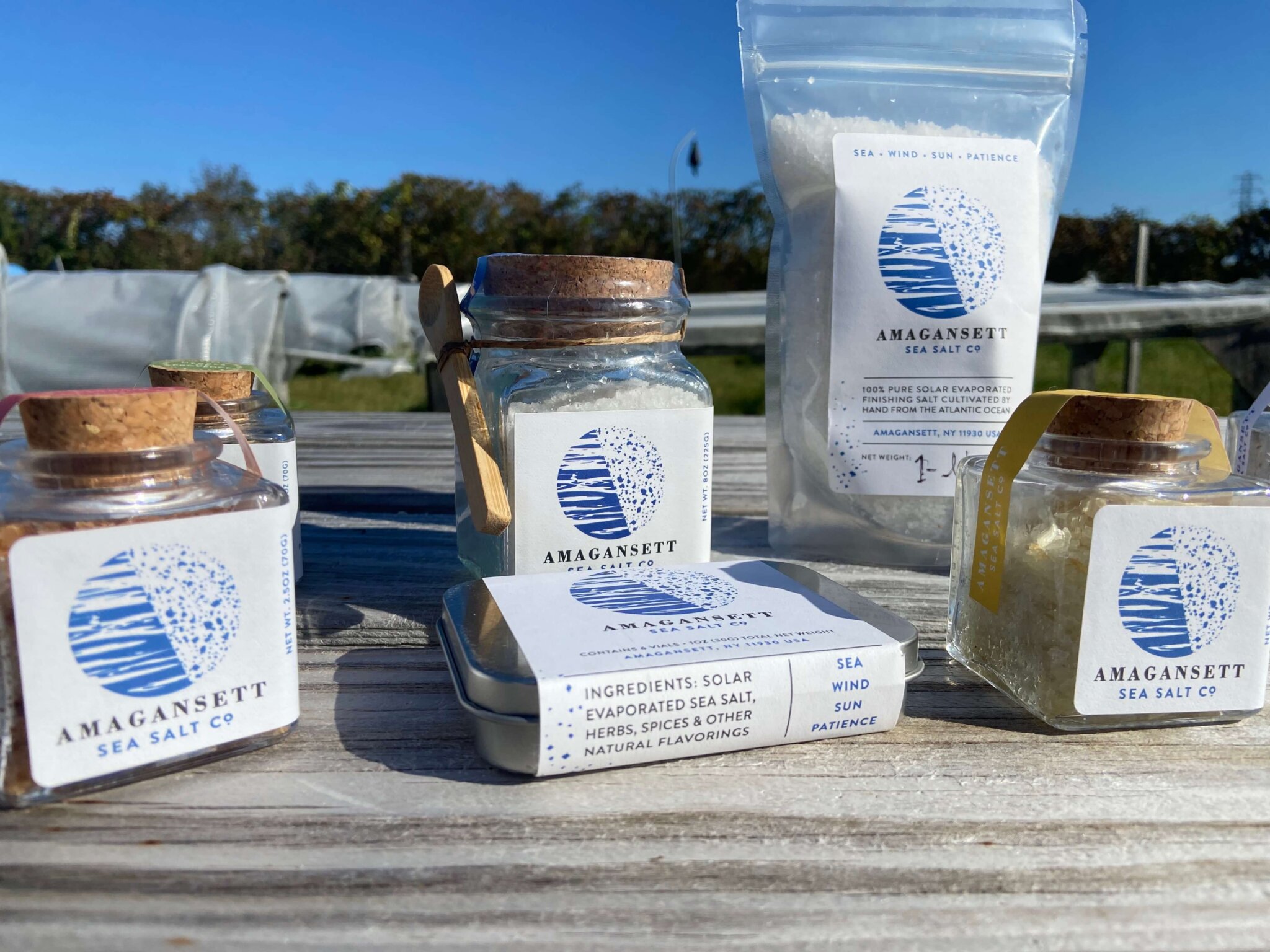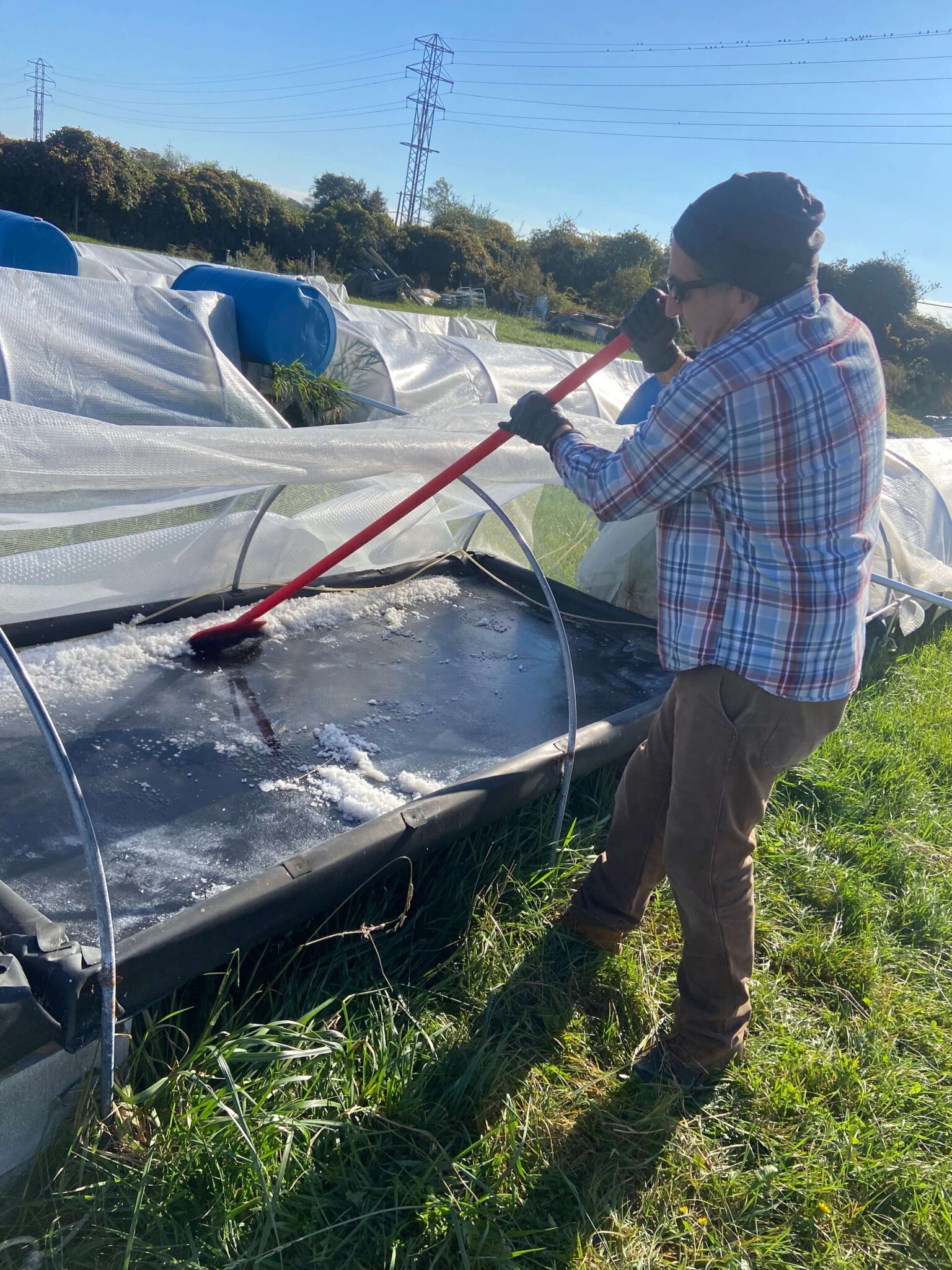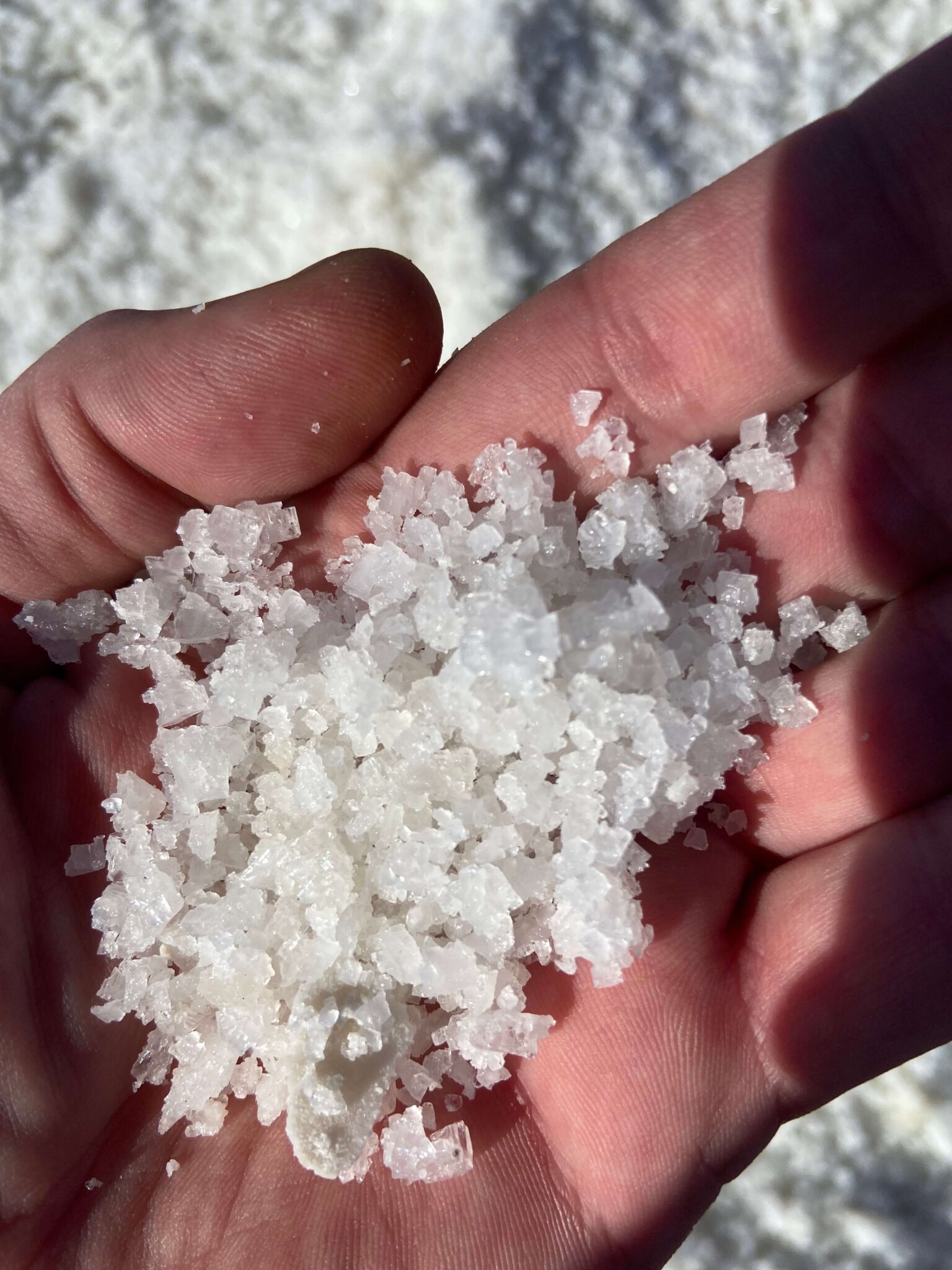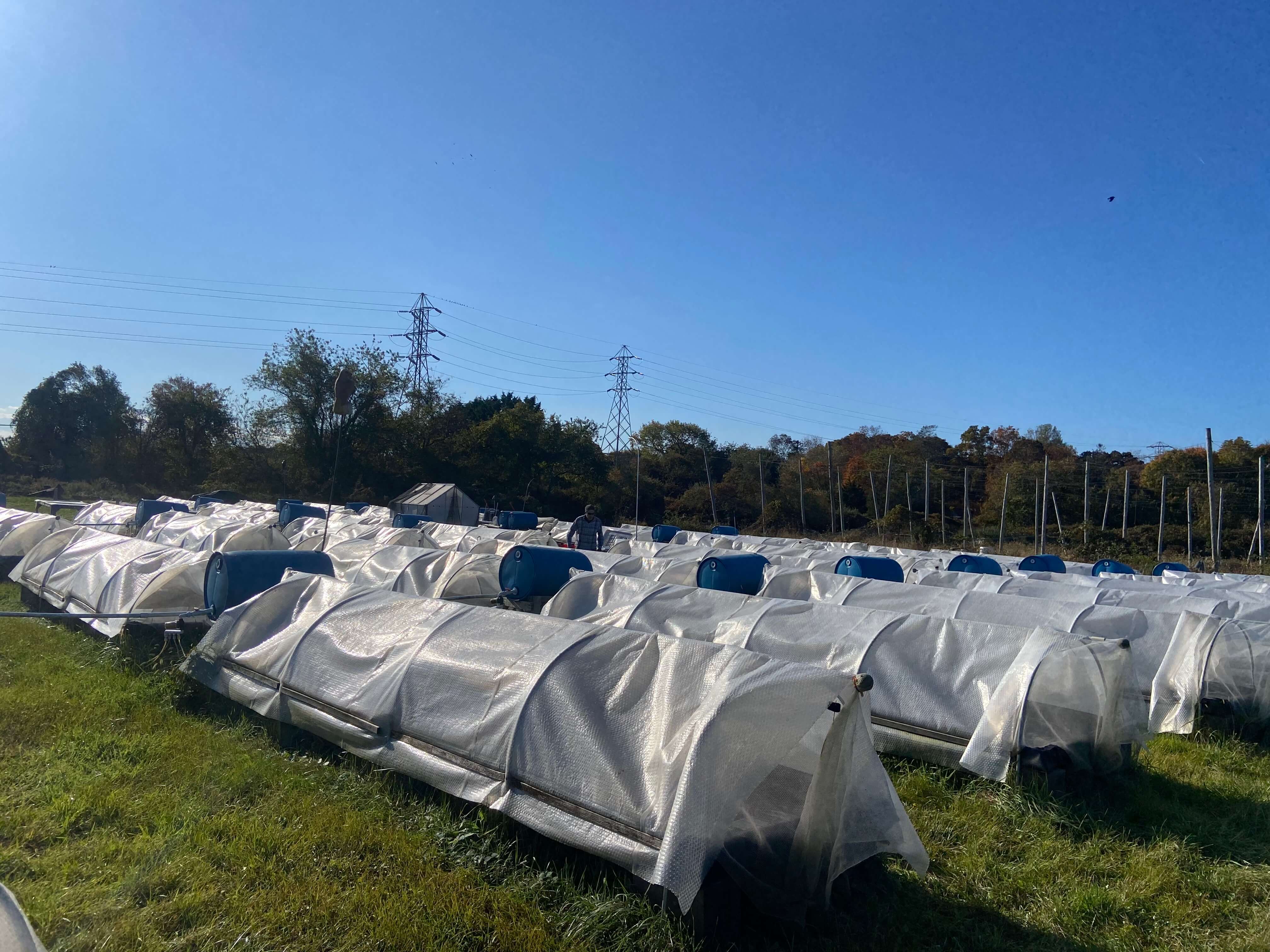From a Manhattan Rooftop to Eleven Madison Park: Amagansett Sea Salt Co. Is Flavored by the Atlantic

Location, location, location — the three rules of making culinary salt.
“There’s not a manual for how to make this stuff,” says Steven Judelson, chief salt maker and owner of Amagansett Sea Salt Co., which makes high-end finishing salt for some of the city’s best chefs and restaurants. “But the great variable is the ocean that it comes from, and the algae content in it, that’s where a lot of the flavor comes from. It changes from bay to bay. Part of the art of making salt is trying to figure out how much algae I want there to be in the salt.”
Sea salt, though it occurs naturally, can also be cultivated and harvested much like a farmed product. Much like oysters, the difference between salt tastes are mostly a function of where they are sourced. For Amagansett Sea Salt, it’s being extracted from clean, fresh, hand-drawn sea water from our abundant Atlantic coastline, and the difference is striking.
“What I’d love people to understand is that all salt is not the same,” says Judelson. “They have different flavors, different tastes, different textures. A little salt – even as little as a grain – can just elevate your food so drastically.”

If anyone would know, it’s Judelson. His hand-made culinary salt harvested from local ocean water is the preferred choice of powerhouse, Michelin-starred restaurants like Eleven Madison Park and Gramercy Tavern, as well as local South Fork hits like Nick & Toni’s and 1770 House.
Currently wrapping up his fall harvest, the rows of salt pans on Judelson’s small farm in Amagansett produce around 1,500 pounds of unrefined sea salt per season, all of which Judelson personally scrapes from each bed on the farm — picture someone scraping the ice off the windshield of a Mack Truck several hundred times a year.
Trial and error over the course of the last 15 years though has helped him perfect his methods, which involve regulating how much organic material — mostly algae — is added or removed during the filtration process.
“Not all salts are made the same, or the same way. Some salt guys don’t even filter,” he says. “There’s a belief out there that it’s an easy side hustle, and that just isn’t the case.”

A Westchester native and attorney by trade, Judelson began cultivating salt as a hobby. First on his Manhattan rooftop, and then in Amagansett, where after some struggles in the real estate market he began to envision a future cultivating artisanal sea salt.
Fifteen years later, with the help of his wife and partner, making sea salt has become a full-time focus and passion. Those in the loftier circles of the food industry are well aware, too. One of his best customers is Eleven Madison Park, a restaurant the Michelin guide calls a “temple of modern elegance with a zealous dedication to masterful precision.”
Word tends to travel when renowned chefs, restaurants, and retailers (like Amber Waves Farm, Amagansett Seafood Store, L’Epicuriste, and Good Westhampton) are using and selling your product.
“I try to treat this like a farmer’s product,” he says. “We tend the crop just as a farmer would tend their crop. Instead of planting seeds, we’re going to the ocean and getting seawater and putting the seawater through a filtration process.”

Unlike other salt products, at Amagansett Sea Salt Co. there’s no boiling or over-drying or unnatural heating processes involved. It’s an entirely organic system, only dependent on the sun, the sea and the natural ocean air breeze. “We knew right off the bat when we were scaling up that solar evaporating it outdoors made the best salt for us,” he says. “I tried it all different ways over 15 years and it just doesn’t come out the same.”
For the uninitiated, Amagansett Sea Salt is an unrefined, crunchy sea salt crafted entirely by hand in small batches from the Atlantic Ocean. The process utilizes open-air salt pans to evaporate clean, filtered seawater outdoors under the sun with the help of the ocean breeze. Properly balanced, brilliant white salt crystals will slowly form as the water dries. The raw crystals are then broken up by hand and readied for processing and packaging.
Known for its mild, briny flavor and soft, pleasing crunch, Amagansett Sea Salt is known to be on the “sweet” side with a clean flavor. It is generally used as a “finishing salt” — also known as a “plating salt” or a “post-plating salt” — meaning it is applied directly to food to amplify flavors and add visual texture.
For more information about Amagansett Sea Salt, visit amagansettseasalt.com.









